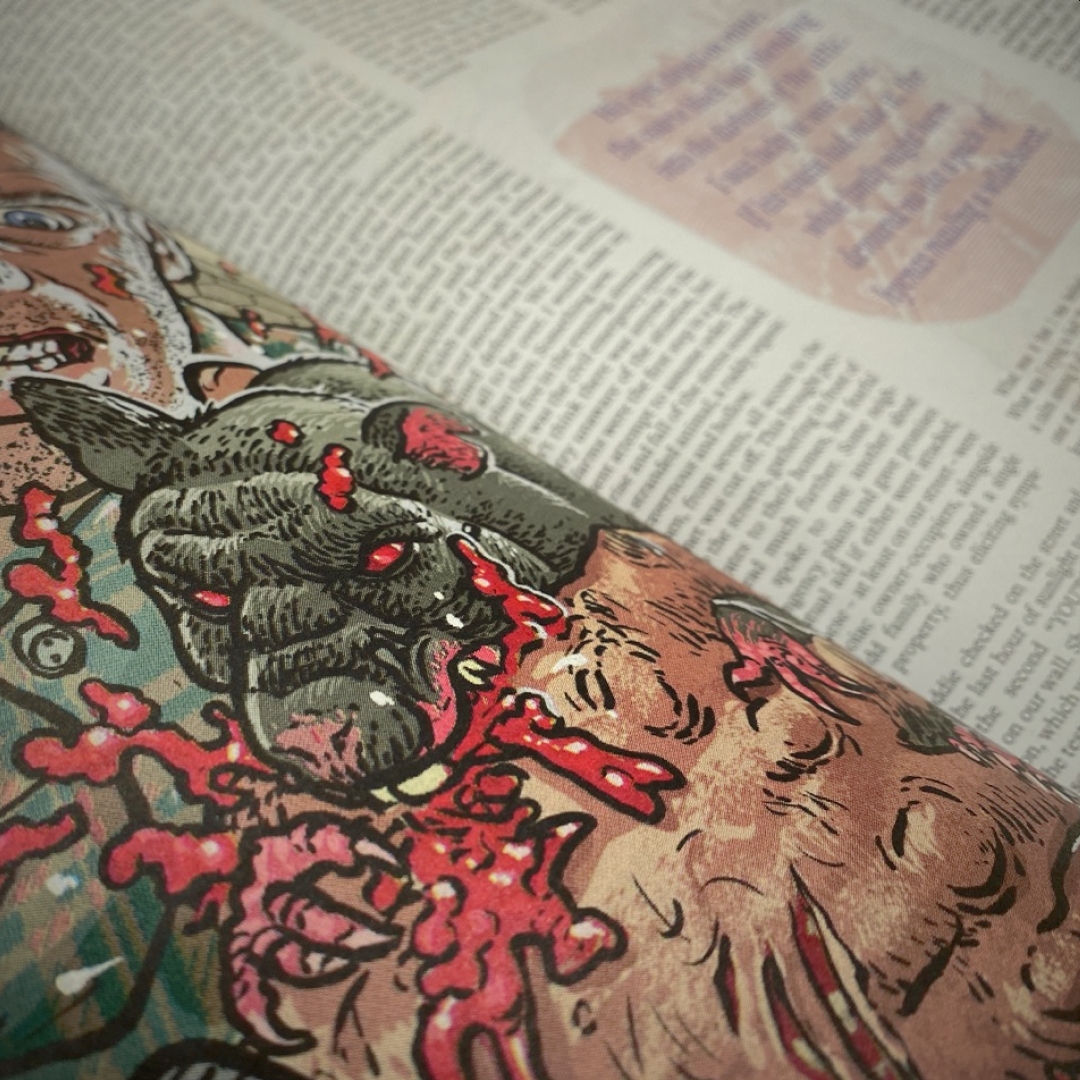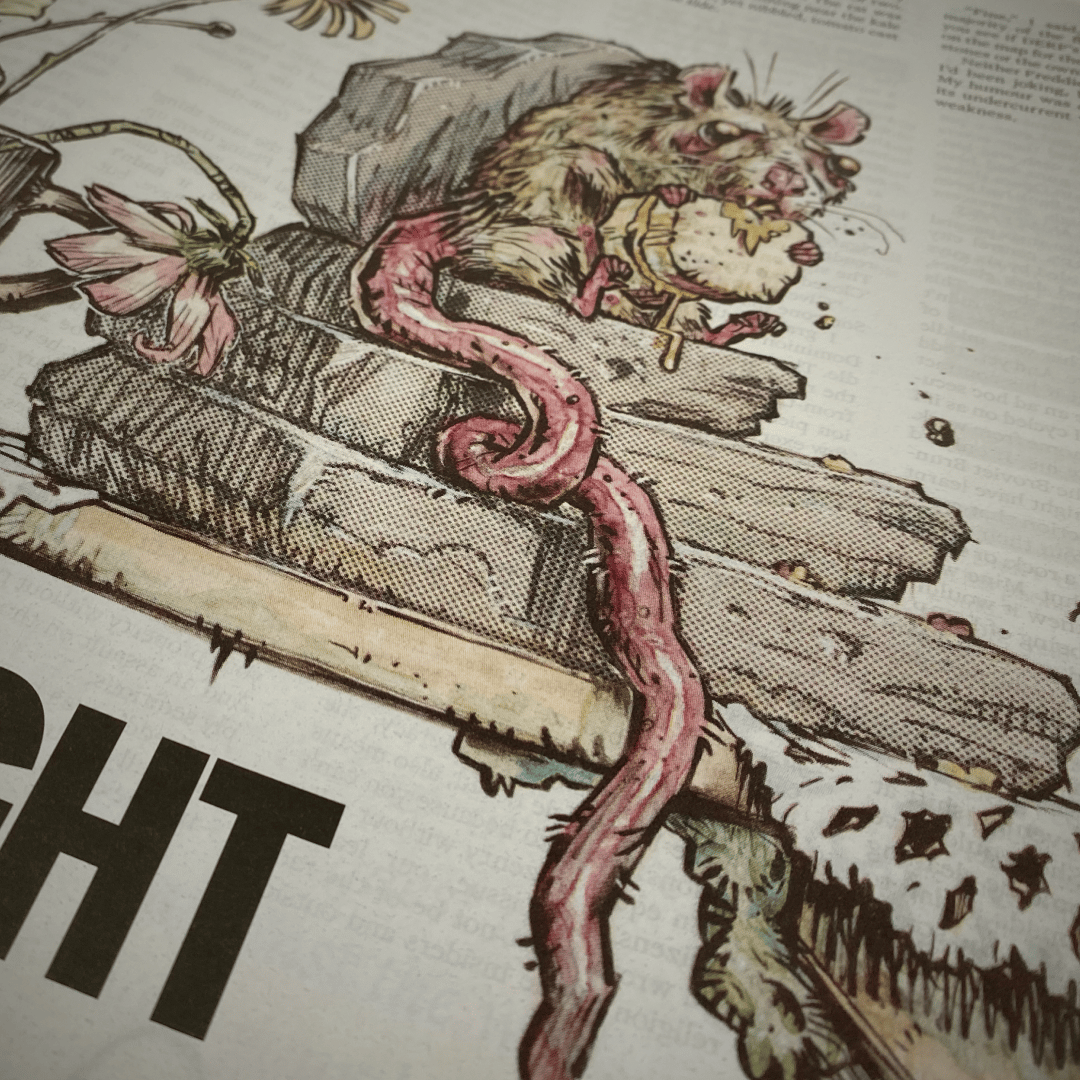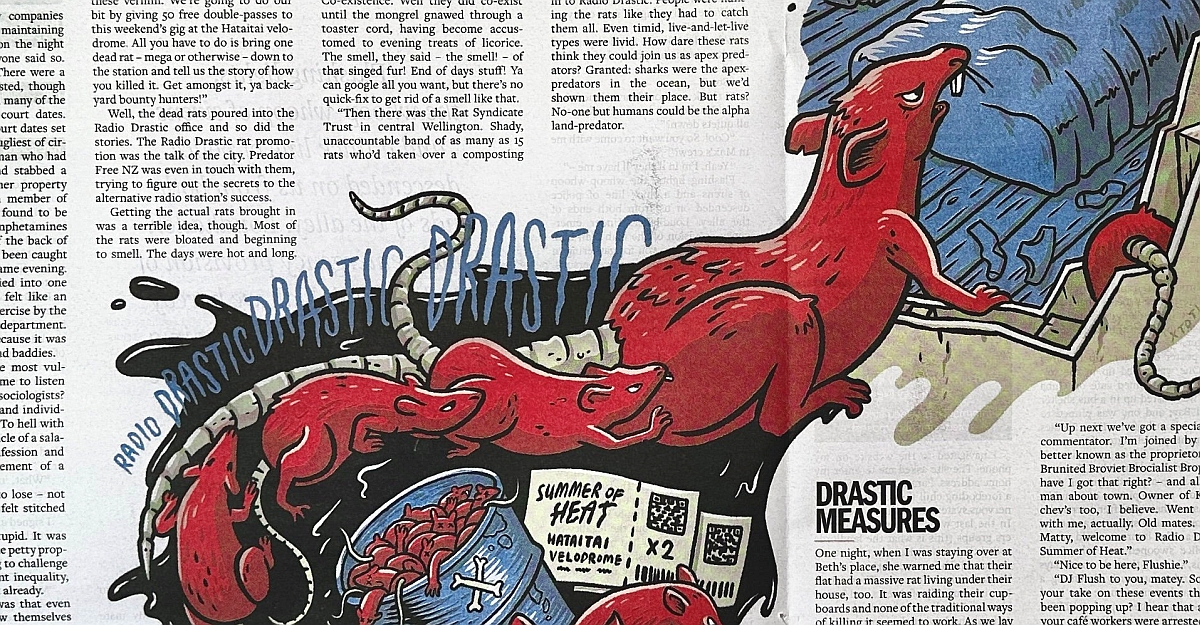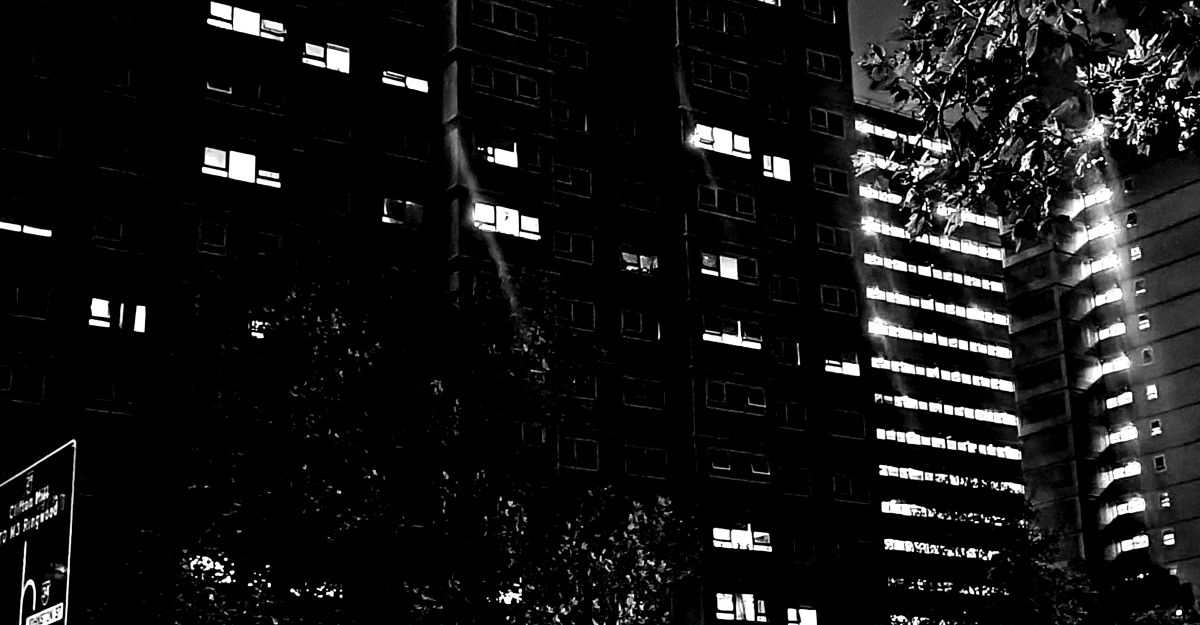Rats are to 2023 as teen vampires were to 2008.
We’ve got good rats, like Magawa the mine sniffing rat. There’s a rat czar who, unfortunately, is not a rat. And we’ve even got a rat ambassador (who is a rat) who is a legitimate chonker. We love them all. They’re just part of the wonderful cultural tableau that has settled on the rat as the hero we need.
In Aotearoa New Zealand we’ve also got the Rat King Landlord which is a novel about a rat who becomes a landlord.

I wrote Rat King Landlord in 2020—the year of the rat, according to the Chinese Zodiac—prior to much of this rat malarkey. The novel was released as a paperback to much love from those suffering through crappy housing conditions and mild disinterest from those who were not.
Late last year, Renters United and I joined together to make a new version of Rat King Landlord that would be free to renters. I had been aware of Renters United for about four years when the book came out and I loved what they were up to. Whenever the weird logic of property speculation got air time, Renters United would be there talking about the real impact on people.
We were faced with two challenges: where to get the funds to make a few thousand copies, and how to make sure the copies didn’t just sit in our garages getting damp.
The answers came through PledgeMe, a crowdfunding platform that offers rewards to people pledge money. If people pledged $20 they would get a copy of the newsprint version; for homeowners $49 would get you a silver version of the original novel; $99 would get you a gold covered version.
Unlike the original, this edition was going to be a full-colour, newsprint publication. Sixteen illustrators each donated their time to create a drawing to bring the story to life. As the campaign got underway, the vivid illustrations appeared in Renters United’s inbox. Rats, rats and more rats. There were rats of every colour and emotional register: furballs, fluffos, demon-rats, tentacular rats and good old grimy-grey realistic rats.
Within 12 hours of launching, we knocked past our bare minimum goal of $1500. I had kind of known it but none of us had been sure: there was a lot of love out there for the work of Renters United, and a strong desire to support a project that would thumb its noses at the obscenities of our borked housing system.
With the crowdfunding at $3000 at the end of the first day, doubling our bare minimum, we hastily made a series of stretch goals.
$5000 and we’d do launch events in Auckland and Wellington; $7000 and we’d go to the South Island; $9000 and we’d visit a few more North Island centres. $6000 and we’d Spam the State (ie, taking advantage of the Parliament freepost address to send copies to all 120 MPs, plus 10 government departments) and for $8000 we’d send copies to other rental organisations around the world (Benin! Adelaide! Den Haag! Venezuela!). And then the big one: $10,000 and we’d print 10,000 copies.
Five days later and the dust had settled. We’d knocked through every stretch goal and our challenges had only grown. We had 10,000 copies to print and distribute, reduced to a cost per unit of 74c. We also had committed to events in at least six cities. (Yes: there are six cities in New Zealand.)

There are two ways to do a tour. The first is to do all dates in one swoop. Take a week off work, borrow a friend’s car and travel across both islands. The second is the piecemeal one: a weekend here, a weekend there. This approach works well for bands that tend to draw better crowds on Friday and Saturday, but don’t have much to do Sunday through Wednesday.
We took the second approach: lining up Wellington one weekend, Palmerston North soon thereafter. We planned a long weekend in the South Island, ferrying across and driving ten hours down on Thursday and ten hours back on Saturday. Then, finally, we tacked on an events in Auckland and Hamilton.
There were also two kinds of complimentary events that we ran to solve that big distribution challenge. The first type of event was hawking: we’d find ourselves a stall in a high traffic zone and approach random strangers. At CubaDupa, Newtown Festival and across one afternoon at the University of Otago we built up our courage to and offeroffered a copy or copies to bypassers. This approach felt a lot like hitchhiking—you’ve got a few seconds to make an impression and convince a person that they should take you seriously and maybe even take a chance on the pamphlet being thrust at them. As with hitchhiking, it is a great way to reconnect to the good of humanity. For every staunch ‘not-for-me, mate’ you’d get a genuinely curious person.
The second type of event was the Launch, drawing in our initial pledgers, Renters United members and hardcore Rat King Landlord fans. These events were not high-traffic, but high-commitment. Most people departed with multiple copies and some with bundles of fifty copies to share with their communities. These were also the events where we got into intense discussions about strategies on the housing crisis and the power of art to assist in activism.
From an author’s perspective the whole tour was a raging success. What writer wouldn’t want to have a team help produce a beautiful new edition of their work and distribute it to ten thousand people?
Throughout the tour, however, Renters United were also dealing with the question of what would make this a success for them. There were many of their small goals that they achieved: reconnecting to people outside the major centres and sharing their plan to fix renting (the last spread of the novel’s forty pages). But there was also a kind of catharsis for them in being face to face with people in a dedicated, pro-renter space. They talked in many of the launch sessions about the drag of online campaigning, which had become the main way to connect to people during the pandemic. There was, they said, something rejuvenating about the physicality of the project: handing a printed version of this Renters United version of Rat King Landlord to someone, looking them in the eye, and having a conversation about being a tenant. That’s political power and something we shouldn’t give up on.
Rat King Landlord is available in many locations across Aotearoa New Zealand, or via the Renters United website. If Australian/Pacific readers choose the NZD$10 option we’ll send a copy to you, too.




